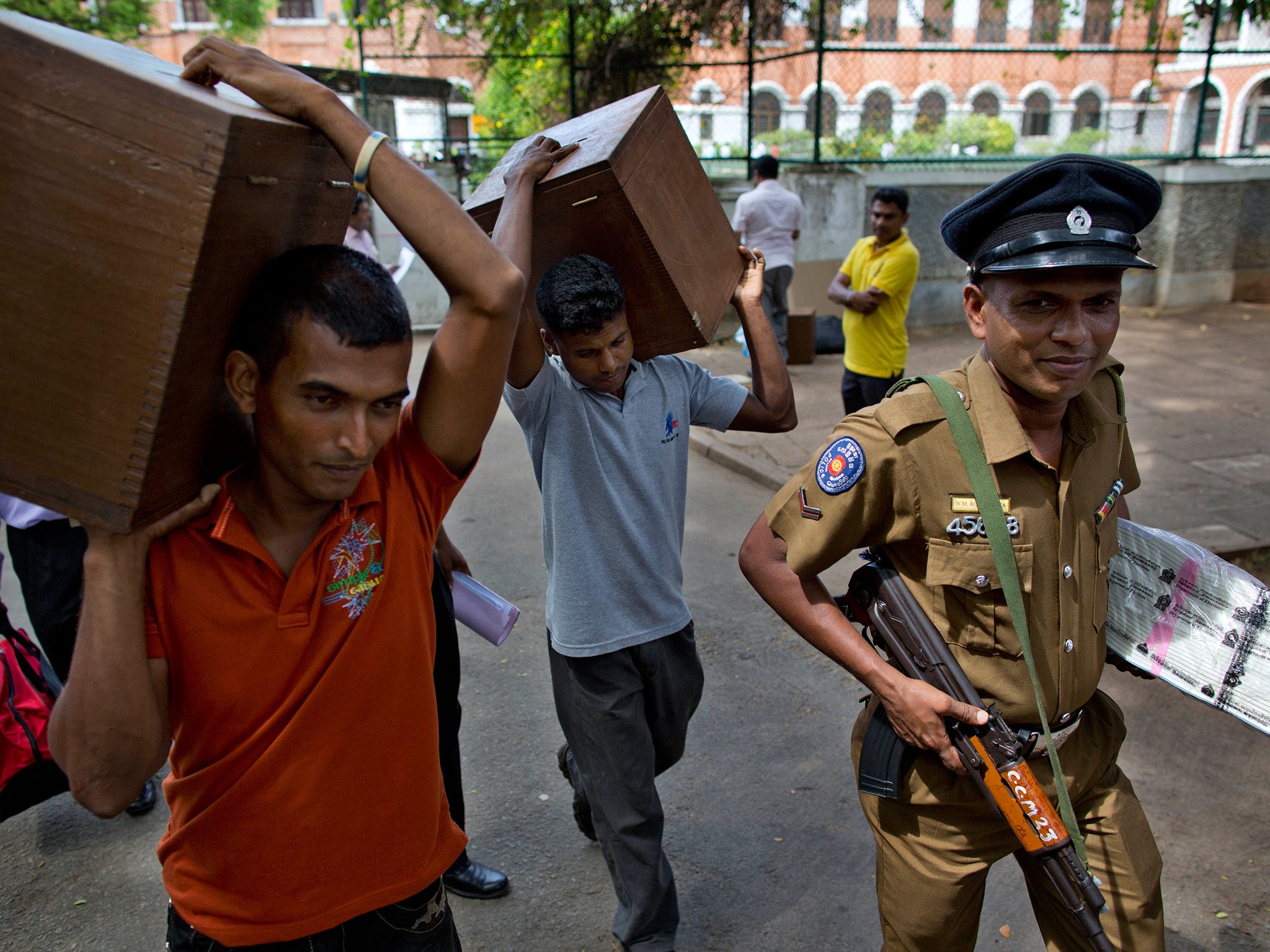Sri Lanka's former President Mahinda Rajapaksa forecasts election success despite war crimes probe

Your support helps us to tell the story
From reproductive rights to climate change to Big Tech, The Independent is on the ground when the story is developing. Whether it's investigating the financials of Elon Musk's pro-Trump PAC or producing our latest documentary, 'The A Word', which shines a light on the American women fighting for reproductive rights, we know how important it is to parse out the facts from the messaging.
At such a critical moment in US history, we need reporters on the ground. Your donation allows us to keep sending journalists to speak to both sides of the story.
The Independent is trusted by Americans across the entire political spectrum. And unlike many other quality news outlets, we choose not to lock Americans out of our reporting and analysis with paywalls. We believe quality journalism should be available to everyone, paid for by those who can afford it.
Your support makes all the difference.Sri Lanka’s former president Mahinda Rajapaksa faces corruption charges and an international war crimes probe. Today, he is attempting a comeback as prime minister in the country’s general election.
Despite the unusual calm that preceded today’s polls, uncertainty prevails over political parties, poll analysts, the general public and international election monitors. On Friday, President Maithripala Sirisena, a bitter rival of Mr Rajapaksa, vowed to use everything in his executive powers to stop the former president from becoming prime minister.
Mr Rajapaksa, a Sinhalese, still commands strong support from a section of the country’s 70 per cent Sinhala-Buddhist majority. He is under investigation for war crimes and human rights violations by the United Nations Human Rights Commission (UNHRC). David Cameron and US President Barack Obama have been pushing for inquiries into war crimes allegedly committed by the military during the last phase of the war against the Tamil Tigers.
The Rajapaksa family name has been linked recently to the gruesome 2012 murder of Wasim Thajudeen, a popular Sri Lankan rugby player.
But the Rajapaksa camp remains confident that the Sri Lanka Freedom Party, which is headed by President Sirisena, will win. “We will definitely win. And Mr Rajapaksa will become Prime Minister. There’s no doubt about it,” said Rohan Weliwita, the former president’s spokesman. “Mr Rajapaksa will swear in as Prime Minister on 21 or 22 August.”
According to Mr Weliwita and other members of the Rajapaksa faction, SLFP will win at least 118 out of the 225 parliamentary seats – a figure that analysts say is unrealistic.
The apparent confidence of Rajapaksa supporters has made poll watchers nervous. One established election forecaster said: “I was predicting a clear win for the United National Party and Ranil Wickremesinghe as Prime Minister, but the confidence of Mr Rajapaksa’s allies is making me a bit jittery.”
Members of the minority Tamil and Muslim communities who voted Mr Rajapaksa out in the January presidential elections are nervous too.
“God forbid,” said Grace Fernando, a marketing manager in the Buddhist strong-hold of Kurunegala, which the former president is contesting. “It will be the end of minorities if Rajapaksa comes back.”
In a letter to Mr Rajapaksa on Friday, Mr Sirisena, once a close ally of the former president, urged him not to “fan the flames of ethnic hatred” – cementing accusations that the Rajapaksa family fuelled ethnic violence against minority Muslims and Christians during the latter part of his 10-year presidency.
“We didn’t vote the new president in, we just voted Rajapaksa out,” said Sripriya, a 38-year old former Tamil Tiger rebel in Kilinochchi, within the old war zone. “We will go again to the polling booths to vote him out.”
Those sentiments echo through a cross section of the community – even among former die-hard Rajapaksa loyalists who revered him for ending the bloody three-decade ethnic war.
“I voted for him last time because he ended the war,” said Kumara Padmachandra, a Sinhalese driver from the capital, Colombo. “But in the past eight months we have become disillusioned after hearing about the extent of his corruption.”
Join our commenting forum
Join thought-provoking conversations, follow other Independent readers and see their replies
Comments